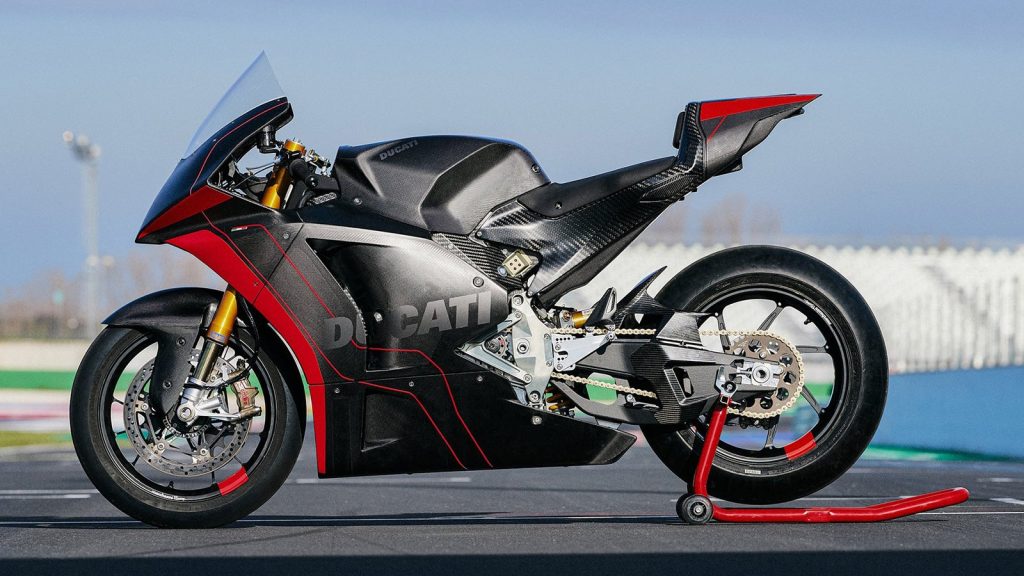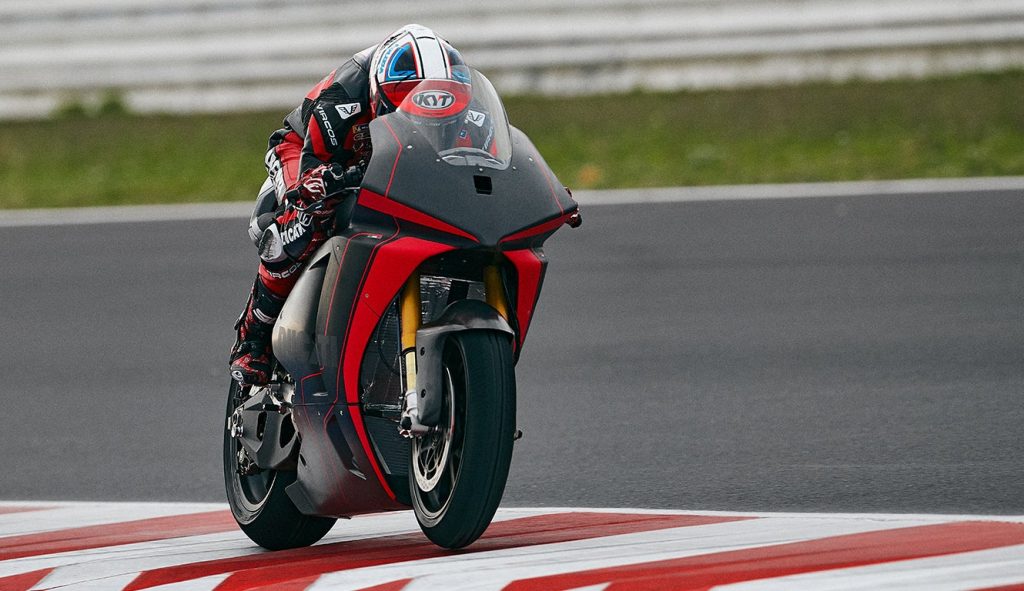Ducati still says it can’t yet succeed to build electric motorcycles for consumers, and blames its inability to supply an electric motorcycle on the current state of battery technology.
That’s despite the company’s parent group Volkswagen AG’s recent EV progress and despite Ducati itself now being the sole supplier of electric racing motorcycles for the FIM MotoE electric motorcycle racing series.
Last week the company doubled down on pulling the brakes on electric motorcycles. Ducati North America CEO Jason Chinnock recently explained to Bloomberg that “[i]t’s going to be some years,” before Ducati has a consumer electric motorcycle because “the battery technology really isn’t there.”
The statement adds to years of Ducati complaining that battery technology continues to prevent the motorcycle maker from producing electric models for riders.
The company has even said that synthetic fuels are a more likely alternative to reduce emissions, instead of exploring EVs.

It’s an about-face from CEO Claudio Domenicali’s statement in 2019 in support of an electric Ducati, when he announced: “The future is electric, we’re not far from starting series production.”
Despite that statement leading to speculation that Ducati was making significant progress in the development of an electric motorcycle, Domenicali threw cold water on the idea two years later when he blamed batteries for Ducati’s lack of results:
Let’s say that at this moment the main complexity in making electric motorcycles with high performance and autonomy lies in the battery. So we are following with great attention the evolution of this component, and at this moment we are evaluating when and at what moment the amount of energy that can be stored in a battery will somehow make a product like a full scale electric motorcycle usable.
There is an evidently important evolution, because compared to, for example, fifteen years ago there was a very important change, another ten years ago again; today lithium batteries are very performing but are not yet able to store a sufficient amount of energy to keep the weight of the bike at its current level. Today, therefore, compromises are needed between autonomy and weight.
Already for the middle of this decade an important step such as solid state batteries is expected, and even more important developments for the end of the twenties.
Domenicali’s claim that lithium-ion batteries haven’t advanced enough to provide sufficient stored energy and performance doesn’t seem to match the rest of the industry.
Not only have electric motorcycle makers like Zero been building e-motos for over a decade, but even legacy motorcycle manufacturers like Harley-Davidson have been producing thrilling models for years now.

With Ducati rolling out an electric racing motorcycle for the FIM MotoE racing series this year, many motorcycle fans thought that a consumer version would follow closely behind. But based on the language coming out of Borgo Panigale, it doesn’t seem like we’ll have a high-performance electric Ducati any time soon.
In the meantime, plenty of other companies seem to be picking up the slack with fast, high-performance electric motorcycles. Ducati may have missed the bus, but the opportunities for riders are still growing every day.
Read the full article here



